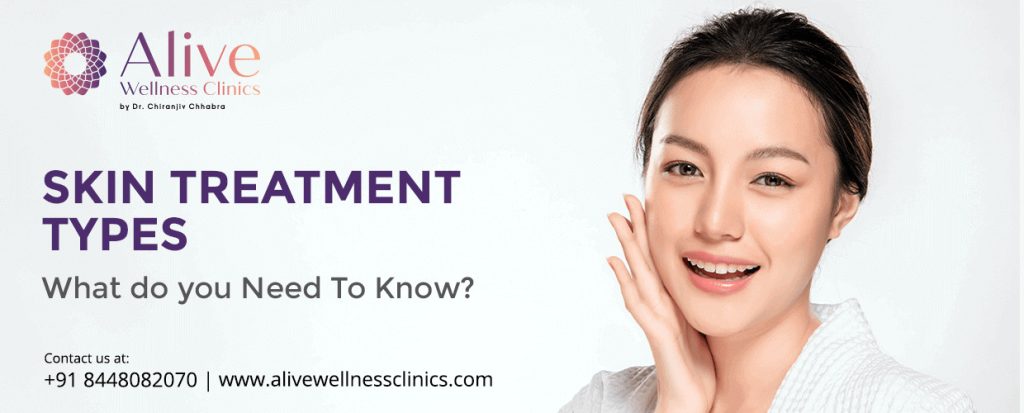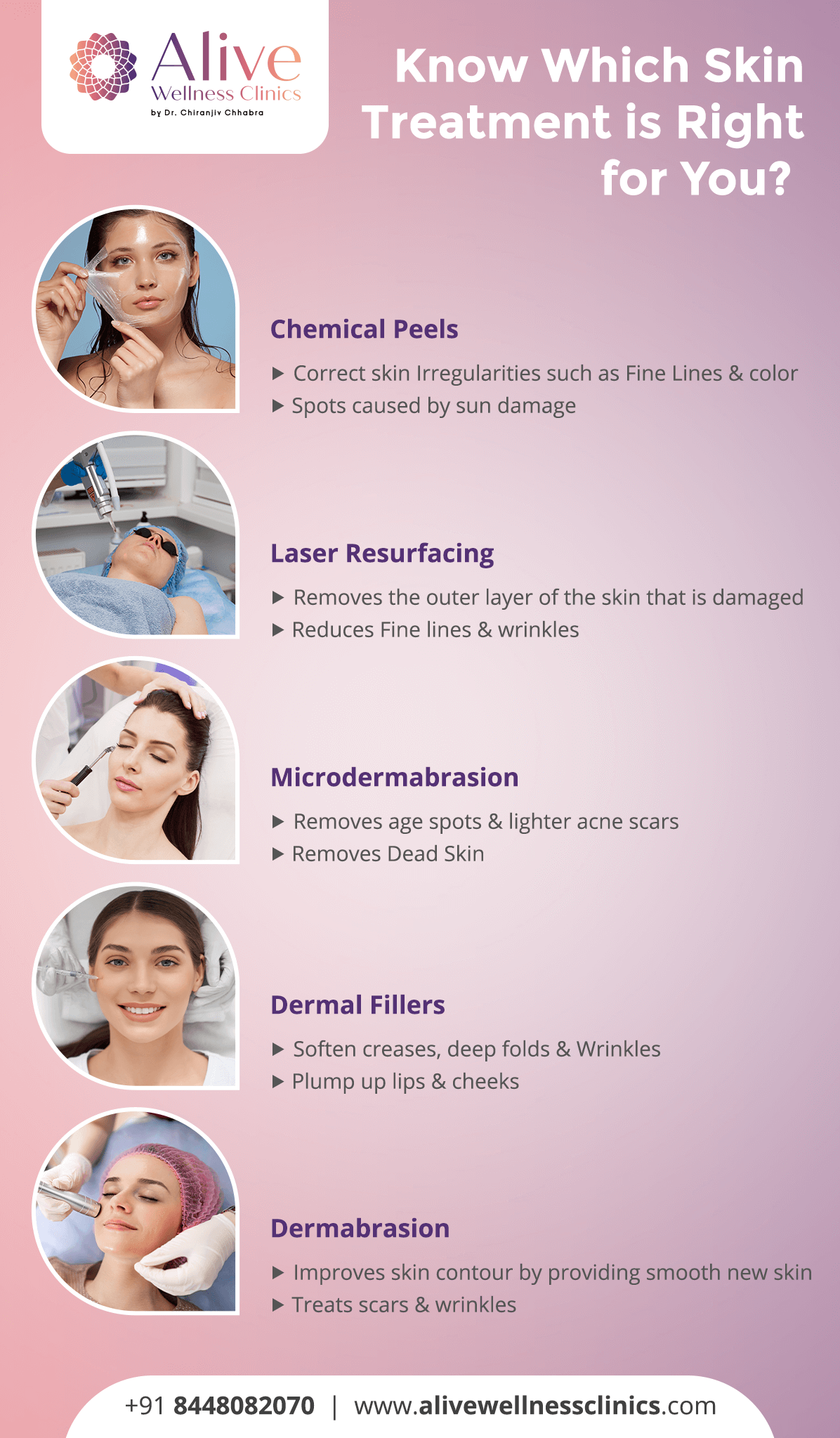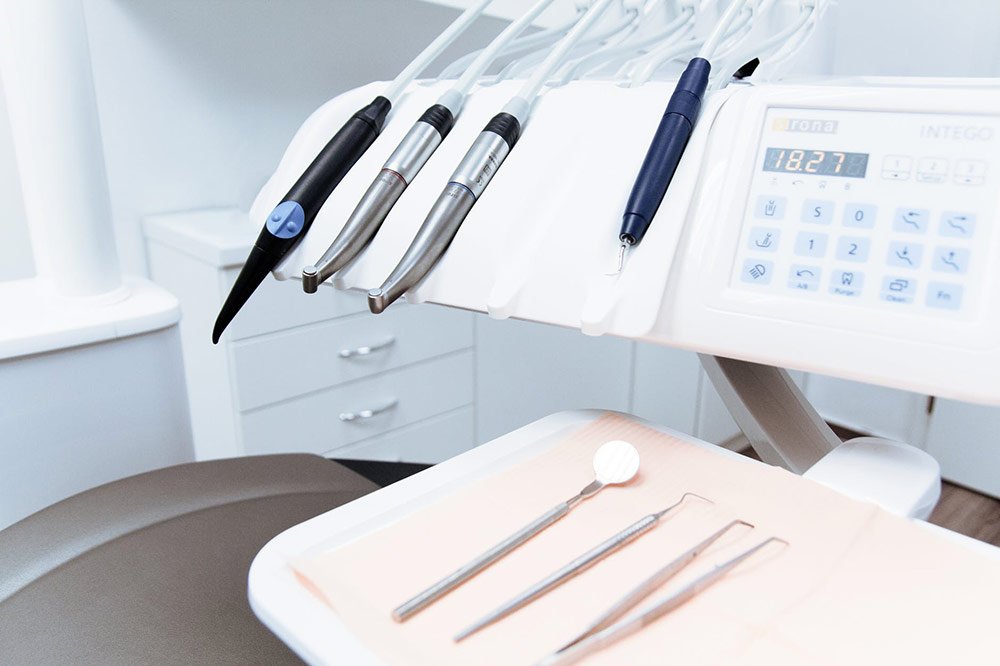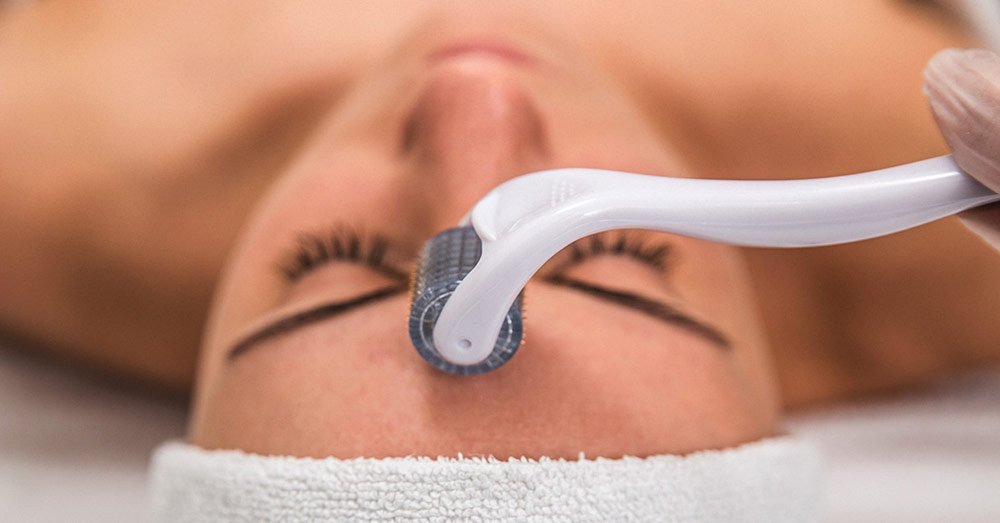Skin always acts as the first line of defense against a plethora of infections. The skin withstands the weather adversities and the harmful U.V. rays of the sun. And so, yes!! We must protect the skin and take care of it, both internally and externally. Recent advancements in aesthetics and skin treatments have brought in a new definition to the term ‘Beautiful skin’.
Sometimes, the skin may require much more than the three essentials; cleansing, toning and moisturising. A wide range of skin treatment modalities can revitalise, rejuvenate, repair, as well as reverse dull and ageing skin. Types of skin treatments depend on the nature of skin and its requirements. This article speaks about the three basic types of skin care regimes that are designed keeping in mind the very fact that ‘Every individual’s skin type is unique and every individual’s skin requirements are different.’
[Table of contents]
Feel free to skip ahead if one of the topic catches your eye:
- Skin pigmentation treatment
- Anti-ageing treatment
- Acne treatment
Takeaway
- Skin pigmentation treatment
Melanin, the colouring pigments, are the major factors that decide the colour of our skin, hair and eye. These are produced in the inner dermal layer of the skin from a special lineage of cells called melanocytes. Pigmentation or hyperpigmentation of the skin occurs when affected or damaged melanocytes alter melanin production. Hyperpigmentation of skin includes pigmentary spots, freckles, melasma (pigmentation developed during pregnancy), solar lentigines and post-inflammatory hyperpigmentation. Reasons for such pigmentary changes of the skin can be attributed to various agents such as:
- Excessive exposure to catastrophic ultraviolet radiations of the sun
- The effect of certain medications
- Certain hormonal stimulations cause abnormal melanin synthesis
The options of skin treatments for flawless skin according to the different skin types and conditions, are described below:
- Retinoids: They are vitamin A derivatives or supplements available over-the-counter. Vitamin A can interrupt the collagen degradation process and prevent the skin from further damage from the sun’s U.V. rays. Vitamin A essentials are also present in various skincare products, lotions, creams, etc.
- Chemical peels: Natural fruit extracted acids like alpha hydroxy acid (AHA – malic acid, tartaric acid, glycolic acid), trichloroacetic acid (TCA) and phenol in chemical peels have the strength to diminish the sunspots and other pigment scars. This is done by exfoliating the upper skin layers.
- Laser peels: Two types of lasers can be used for skin resurfacing.
- One is ablative lasers, where intense and strong lasers are used to treat through the deeper layers of the skin.
- The second is non-ablative lasers that targets only the upper dermal layers and ensures new collagen as well as skin growth.
- IPL therapy: Intense pulse light (IPL) therapy or photo facial is a non-ablative laser treatment that promotes collagen production and growth. Pigmentation issues are majorly resolved through IPL therapy.
- Dermabrasion: This skin treatment procedure eliminates the epidermal and dermal layers of the damaged skin and allows the new skin to grow. Here, the dermatologist uses a handheld tool to run over the skin imperfections and remove them.
- Anti-ageing treatment
Elastin and collagen are two main proteins of the skin that hold the skin tight. These structural proteins are responsible for the elastic and firm nature of the skin. The production of collagen and elastin decreases as the skin ages. Therefore, the skin tends to become pale, thin, less elastic and very fragile.
There is a saying that age is just a number. But let the skin not talk about it, so consider using anti-ageing skin treatments for the face. Finelines, creases, wrinkled skin, crow’s feet around the eyes, smile lines around the cheeks, age spots and other skin ageing effects can be taken care of by:
- Laser resurfacing: It is one of the best skin tightening treatments where lasers stimulate collagen regeneration and eventually reduce wrinkles, fine lines or even loose sagging skin.
- Botox injections: A bacterium Clostridium botulinum produces neurotoxin botulinum. The botox injections have very small doses of the botulinum toxin that prevents the release of acetylcholine at the nerve and muscle interjections stimulating muscle contraction and gradually causing skin stiffness or reduction of wrinkles.
- Dermal fillers: These are soft tissue fillers that include fats, collagen and hyaluronic acid. When they are injected near the wrinkles, they fill up the dips of the skin giving a smoother and fuller appearance in the face.
- Microdermabrasion: This skin treatment procedure uses small crystals to exfoliate the skin and effectively remove wrinkles along with the dead layers of the skin.
- Acne treatment
If you are fighting acne-prone skin, you might be eager to know how to take care of your skin. Excess oil or sebum secretions along with bacteria and dead cells block the skin pores leading to acne breakouts, whiteheads, blackheads and irritating skin. The acne or pimples in their due course of formation and eruption can leave distressing scars behind. The best skincare for acne involves the following three major aspects:
- Acne removal and control
- Acne scar removal
- Lessen acne-causing skin damage
Types of skin treatments for flawless skin with acne-free skin include:
- Retinoids: For skin with moderate to severe acne, topical medications, creams, lotions, etc., which contains retinoic acid or tretinoin, can help control and prevent acne. These retinoids aid in unclogging skin pores of dead cells and reduce acne eruptions or even acne scar formations.
- Antibiotics: At times, when the bacteria get accumulated in the pores of the skin, it can cause infections, swelling and redness. Dermatologists may recommend clindamycin with benzoyl peroxide or erythromycin with benzoyl peroxide containing topical antibiotics. Oral antibiotics having tetracycline or a macrolide may also be recommended to tackle the stubborn acne-causing bacteria.
- Ointments & gels: Azelaic acid and/or salicylic acid are commonly called face acids. Creams and gels having these face acids are known to clear pores and counter acne breakouts. This is because they have anti-inflammatory properties that reduce redness, swelling and skin irritation.
NOTE: It is necessary to understand that these medications or medicated applicators need to be strictly used as directed by the dermatologist. Apart from the above acne treatments, a deep pore cleansing facial, light therapy and chemical peels help treat acne, acne scars and improve the overall skin.
Takeaway
There are numerous benefits of a healthy skin. Taking care of it can help you bring out a more beautiful and confident you. Cosmetic health care has evolved with the advent of technology. Different types of skin treatment regimes can be customised according to the skin type and needs. If you are in Delhi, do avail the benefits of the best skin treatment in Delhi at Alive Wellness. We are proud to present to you the best dermatologists in Delhi who have expertise in using cutting-edge technology and will give you the gift of ‘Beautiful skin’.




